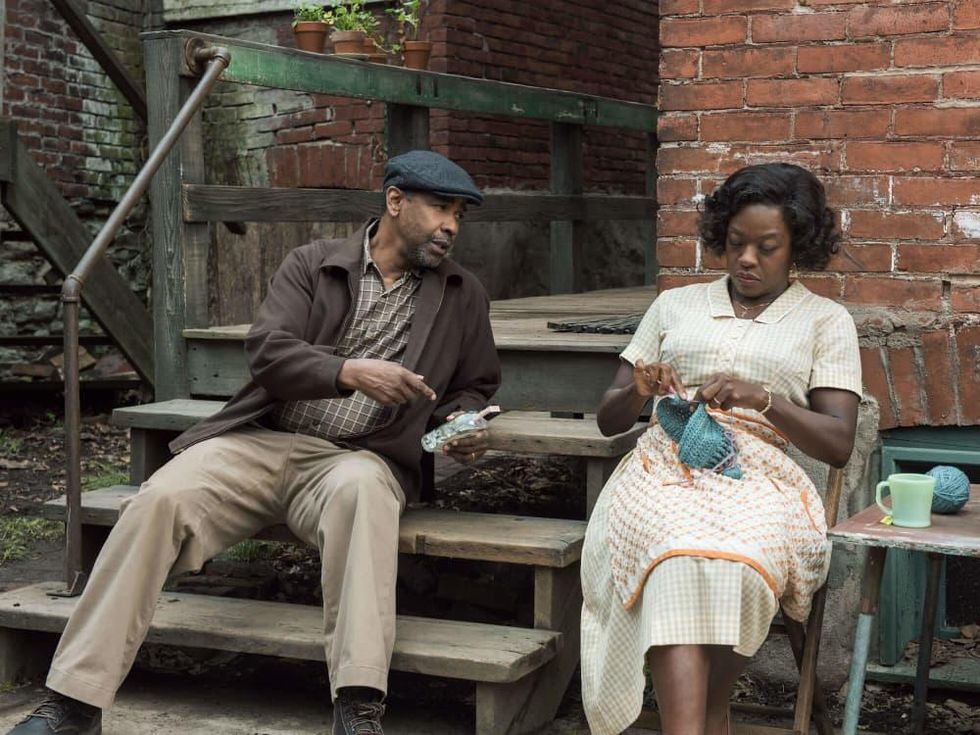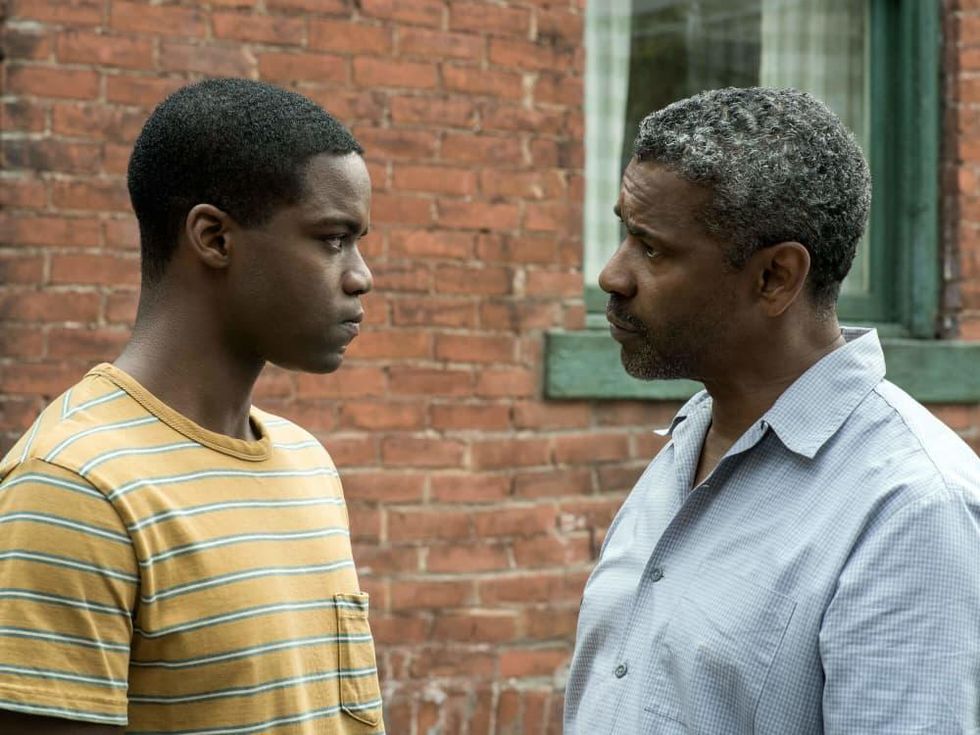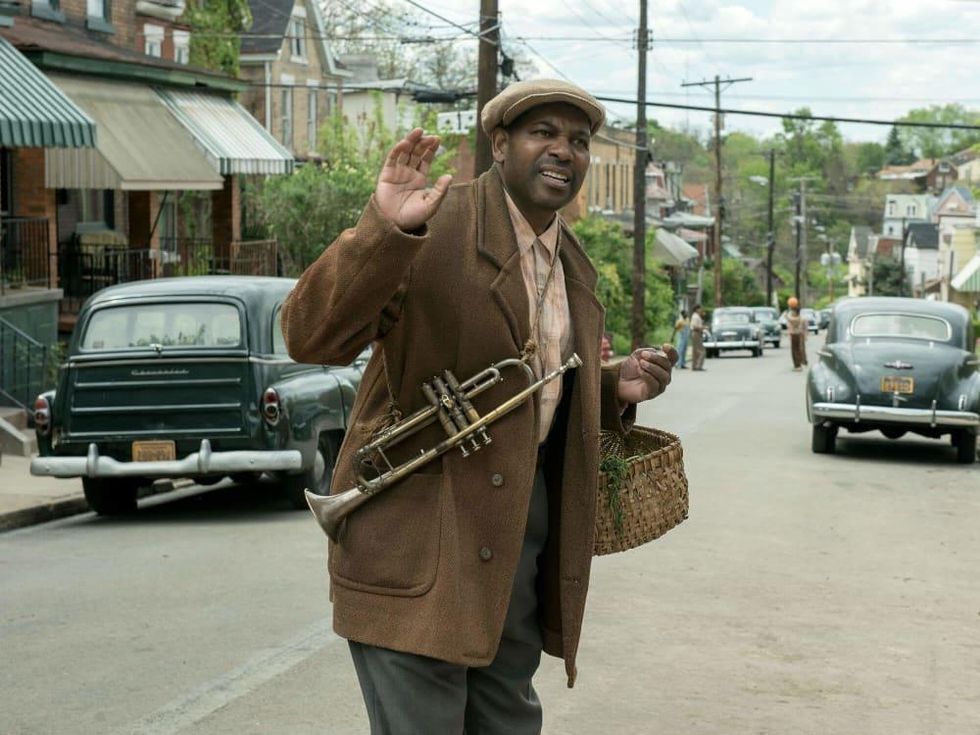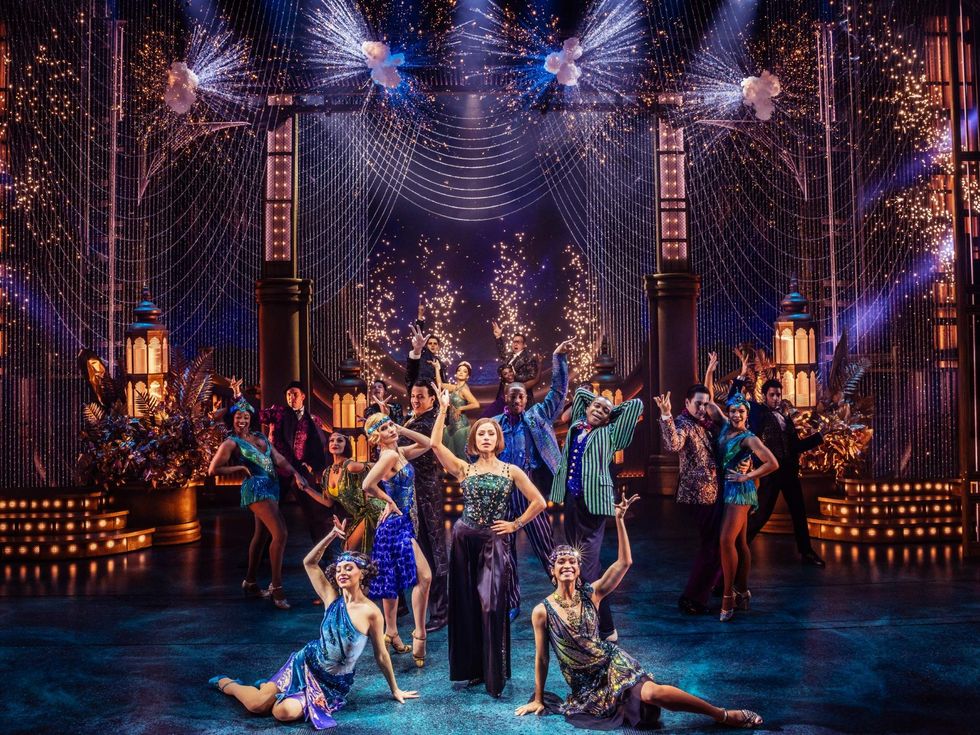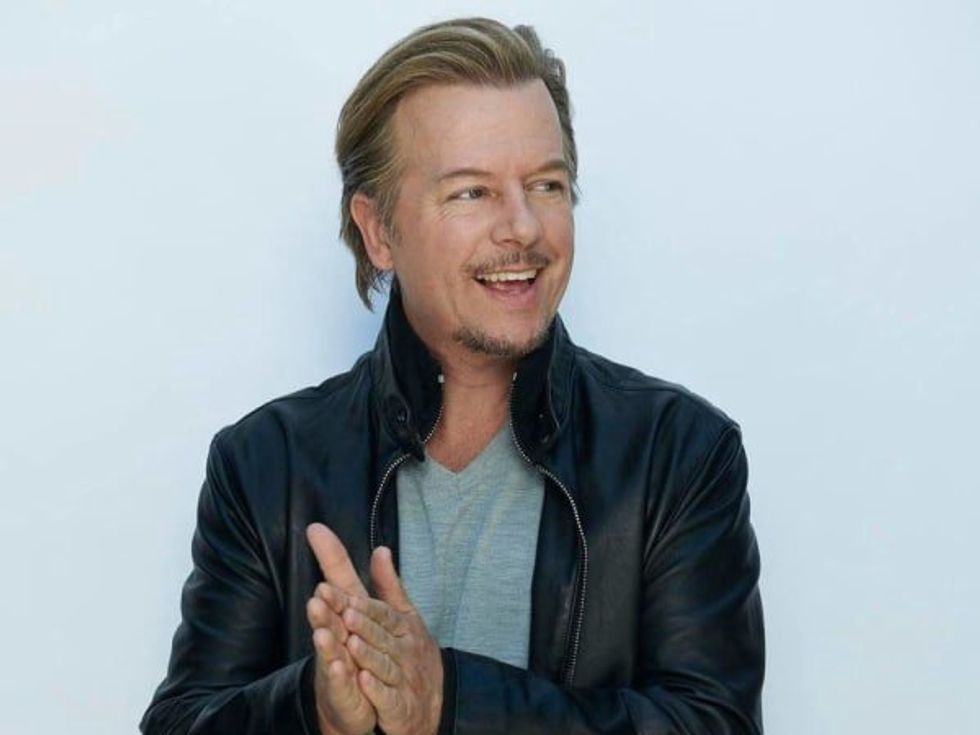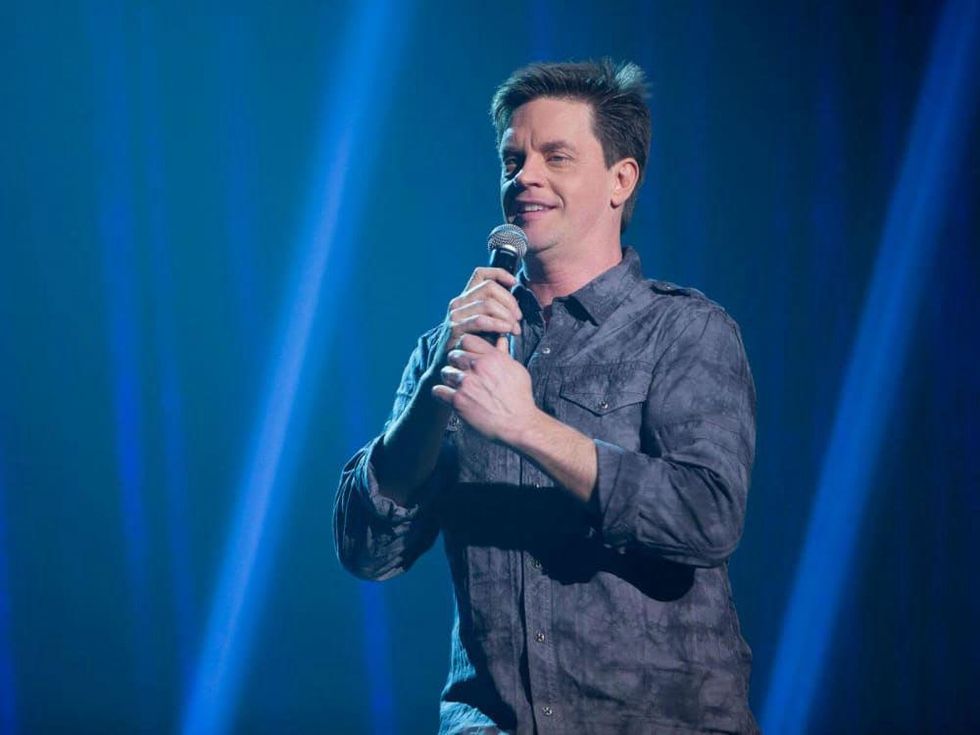It's another big theater weekend across Dallas, with seven different productions/events starting or taking place over the next four days, including a big Broadway musical. Other choices include four well-known comedians, two dance productions, a festival celebrating the oncoming spring, the finals days of an art exhibition, and a symphony concert.
Below are the best ways to spend your free time this weekend. If you want more options, check out the calendar for an even longer list of the city's best events.
Thursday, February 19
Bishop Arts Theatre Center presents Banned Books Festival: So You Want to Talk About Race
Bishop Arts Theatre Center's Banned Books Festival features six short plays inspired by Ijeoma Oluo’s So You Want to Talk About Race. Written by local playwrights, the powerful pieces explore race, identity, and social justice, sparking meaningful conversation and reflection. The festival takes place through March 8.
Theatre Three presents Penelope
What’s Penelope been up to since Odysseus went off to war? She’s had a few drinks and started a band! So go ahead and grab a drink too, and listen to this ancient tale made new with a beautiful folk-inflected pop score about a woman wondering who she is if she’s alone, and discovering that she has, is, and will always be complete, with her husband by her side or otherwise. The production runs through March 22 at Theatre Three.
The Beacon Theatre presents Romeo & Julian
New theater company The Beacon Theatre presents Romeo & Julian, a bold, modern queer retelling of Shakespeare’s classic. It follows the forbidden love between the sons of two rival religious leaders (one Southern Baptist and one Catholic) in the small town Verona, Texas, where being gay is the town’s gravest sin. The production, which started last weekend, will have four more showings through Sunday at Cox Playhouse in Plano.
Auriga Productions presents The Last Testament of Rudolf Hess
Auriga Productions will present the world premiere of acclaimed playwright Dennis Richard’s The Last Testament of Rudolf Hess. Over the course of one afternoon, the unrepentant 93-year-old Hess - imprisoned for crimes committed while serving as Adolf Hitler’s Deputy Führer - encounters the mysterious "Elsa." Her presence forces Hess’s confrontation with the consequences of his conduct during his rise to power and of his ill-fated efforts to broker peace with Great Britain during the early stages of World War II. The production will have four performances through Sunday at Artstillery.
Broadway Dallas presents The Great Gatsby
The Great Gatsby, based on the classic American novel by F. Scott Fitzgerald, is an unforgettable journey of love, wealth, and tragedy that brings the Roaring Twenties to life on stage. The story of extravagance and longing features choreography by Dominique Kelley, a book by Kait Kerrigan, and a jazz- and pop-influenced original score by Jason Howland and Nathan Tysen. The national tour of the Broadway show will be at the Music Hall at Fair Park through March 1.
Ochre House Theater presents Blood Hammer Girl
Tiffany is a storybook main character, bright-eyed, romantic, and dreaming about her future. Living with her mystic father in a village that values quiet obedience, Tiffany discovers a violent, secret tradition that challenges her every belief and relationship. From murky legend to real life, Tiffany must discover the depths of her own darkness, and if possible, find a way out of a murderous nightmare. The production runs through March 7 at Ochre House Theater.
Friday, February 20
Improv Arlington presents D.L. Hughley
Known for being politically savvy in true comedian-style, D.L. Hughley dives head first into hot-button controversial topics with insightfully sharp observations and his signature rapid-fire jokes. He has also made quite an impression in the television and radio arena, as he is known for his sitcom, The Hughleys, as host of his own late night talk show on CNN, D.L. Hughley Breaks the News, and as one of the Original Kings of Comedy. He'll perform five times through Sunday at Improv Arlington.
David Spade: I Got a Feel for It
David Spade became a household favorite during his tenure as a cast member on NBC’s Saturday Night Live. Spade went on to receive nominations for an Emmy Award, Golden Globe, and American Comedy Award for his role on the sitcom Just Shoot Me. He continues to be a box office draw, touring his stand-up shows nationwide. His most recent stand-up special, Dandelion, premiered on Prime Video in 2025. He'll perform at Majestic Theatre.
Ballet North Texas presents Winter Mix
A bold evening of contrast and innovation, Winter Mix features Nicolina Lawson’s serene Pastoral, set to Beethoven’s lush classical score, alongside the electrifying return of Mackenzie Jones’s Frequency 434. Classical beauty meets contemporary edge in this powerful mid-season repertory performance. The production will have performances on Friday and Saturday at Moody Performance Hall.
Saturday, February 21
Dallas Arboretum presents Dallas Blooms
Dallas Blooms is the Dallas Arboretum's most iconic annual tradition, welcoming the city back to spring with more than 500,000 blooming bulbs planted throughout the garden. Across the season, sweeping displays of tulips, daffodils, hyacinths, and other seasonal favorites transform the landscape into a living tapestry of color and scale. In addition to the expansive floral displays, Dallas Blooms features a robust lineup of seasonal programming that brings together food, art, culture and horticulture. The event takes place through April 12.
Piff the Magic Dragon: The Clone Tours
Comedian Piff the Magic Dragon will come to Dallas as part of his The Clone Tours. Fans will have the chance to witness the magic of Piff and Mr. Piffles 2.0, the World's Only Magic Performing Chihuahua.. Guests can expect award-winning comedy, awe-inspiring magic and the debut of new tricks performed by Mr. Piffles 2.0. There will be two performances on Saturday at Majestic Theatre.
Teatro Dallas presents 22nd International Theatre Festival
Teatro Dallas' 22nd International Theatre Festival will finish up with one final production, Potestad. Presented by Hugo Kogan and written by Eduardo Pavlovsky, it is a haunting and deeply unsettling solo play that confronts one of the darkest episodes in Argentina’s history: the systematic kidnapping of children during the military dictatorship. In this intense and complex performance, Kogan embodies the fragmented mind of a man who justifies his role within a system of ideological and ethical manipulation. The performances takes place at Latino Cultural Center.
Bruce Wood Dance presents Wood/Shop
Bruce Wood Dance's annual Wood/Shop is an up-close dance experience that features new creations by their company dancers. The production takes place in the Bruce Wood Dance studios, with performances on Saturday and Sunday, and also next weekend, February 28 and March 1.
Sunday, February 22
Dallas Museum of Art presents "Creatures and Captives: Painted Textiles of the Ancient Andes" closing day
Sunday will be the final day to view "Creatures and Captives: Painted Textiles of the Ancient Andes" at the Dallas Museum of Art. For centuries, ancient Andean artists painted animals, humans, abstract motifs, and mythical beings on undyed cotton cloth. Showcasing a subtle color palette, these painted textiles have long been overshadowed by textiles woven from brightly dyed cotton and woolen yarns. The exhibition presents examples from the DMA’s collection highlighting this lesser-known Andean textile tradition.
Lone Star Wind Orchestra presents 20th Anniversary Season Celebration Concert
Lone Star Wind Orchestra's 20th Anniversary Season Celebration Concert will feature the world premiere of the the wind band transcription of Michael Daugherty's "Last Dance at the Surf," pianist Aaron Kurz performing the "Concerto for Piano and Winds" by composer Nancy Galbraith, the Lone Star Youth Winds presenting Tyler Grant’s "All the Earth and Air," a collaboration between the Lone Star Wind Orchestra and Lone Star Youth Winds, a new film by the Dallas nonprofit kNOwBOX Dance, and more. The concert takes place at Meyerson Symphony Center.
Jim Breuer: Find the Funny
Actor/comedian Jim Breuer is best known as a cast member on Saturday Night Live from 1995 to 1998 and for starring in the 1998 film Half Baked alongside Dave Chappelle. These days, he hosts a weekly podcast called The Breuniverse, where he brings people from all walks of life together. Breuer's standup comedy tackles all subjects from marriage and relationships to current events to love and loss. He'll perform at Majestic Theatre.
Photo by Matthew Murphy and Evan Zimmerman

